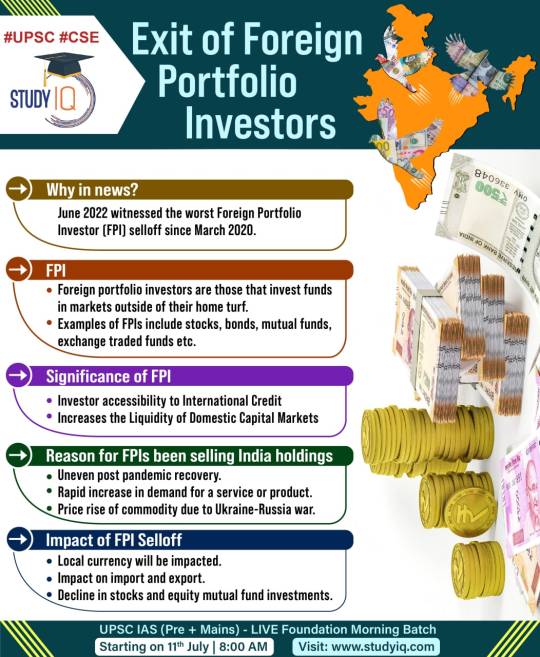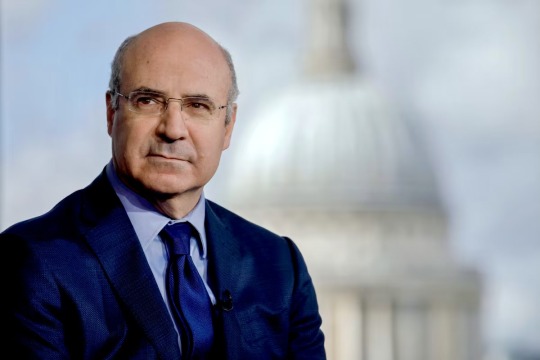#Foreign Portfolio Investors
Text
Maximizing Investments through Foreign Portfolio Investors
In the world of finance, where every decision can have a huge impact on investment, the super savvy investors turn to the expertise of administrative services and investment advisory. For Foreign Portfolio Investors (FPIs), navigating the global market requires not only a deep understanding of investment opportunities but also a seamless backbone to manage administrative needs.
Fund administrative services form the vital aspect of any successful investment strategy. From managing regulatory compliance to handling regular operations, these services ensure that the investment engine runs seamlessly. FPIs, operating in diverse global markets, often find themselves dealing with complex regulatory functions. These services simplify the burden by providing all-round support to meet the needs for streamlining all the operations.
The role of investment advisory cannot be overstated in this maze of global finance. Investment advisers act as strategic partners, guiding FPIs through the global investment opportunities. Their expertise goes beyond traditional asset management, collating insights into market trends, risk analysis, and the identification of most optimal investment avenues.
For FPIs, who often operate in unfamiliar global territories, the advisory services become indispensable. These professionals offer an understanding of local markets, helping FPIs make well-informed decisions that work in tandem with their risk appetite and investment objectives.It helps in gaining confidence for dealing with the unknown.
The investment magic happens when there is a synergy between these administrative services and the advisory. Foreign Portfolio Investors(FPIs) stand to gain significantly by integrating these two pillars of financial management. The seamless coordination between administrative services and investment advice ensures that FPIs not only meet regulatory requirements but also optimize the investment strategies for better returns.
The dual impact of fund administrative services and investment advisory is reflected in enhanced efficiency for FPIs. While the time-consuming administrative tasks are delegated to experts, it frees up the valuable time for FPIs to solely focus on strategic decision-making. It leads to cost savings and also positions FPIs to capitalize on time-sensitive opportunities in the market.
In conclusion, this partnership is a formidable combination for Foreign Portfolio Investors. It not only ensures compliance with regulatory frameworks but also empowers FPIs to make well-informed, strategic investment decisions in the global arena.
0 notes
Text
FPIs investment hit 9-month high at Rs 43,838 crore in May on strong domestic macro-outlook, reasonable valuation - Times of India
NEW DELHI: Foreign Portfolio Investors (FPIs) pumped in Rs 43,838 crore in Indian equities in May, the highest level in nine months, supported by strong macroeconomic fundamentals, and reasonable valuations.FPIs continued the buying stance in June too, and invested Rs 6,490 crore in just two trading sessions of the month, data with the repositories showed.VK Vijayakumar, Chief Investment…

View On WordPress
0 notes
Text
Foreign investors will be able to trade in Indian commodity derivatives, SEBI has given permission
Foreign investors will be able to trade in Indian commodity derivatives, SEBI has given permission
The new move of SEBI will increase the scope and liquidity of the market.
Capital markets regulator SEBI has allowed foreign portfolio investors to trade in commodity derivatives on the exchange. SEBI has given this approval on Wednesday. The earlier trading rules have been discontinued i.e. the existing eligible foreign entity (EEE) route which required actual investment for Indian physical…

View On WordPress
#Capital market regulator#commodity derivatives#exchange-traded commodity derivatives#Foreign Portfolio Investors#fpi#fpi full form#sebi#sebi fpi#sebi fpi commodity derivatives
0 notes
Text
Rupee-Dollar Update: The biggest fall in the rupee against the dollar, the rupee fell to the level of 78.85
Rupee-Dollar Update: The biggest fall in the rupee against the dollar, the rupee fell to the level of 78.85
Rupee-dollar update: On Tuesday, there was a historic fall in the rupee against the dollar. Due to heavy selling by investors, the rupee fell for the first time by 49 paise to Rs 78.85 against a dollar. At the end of today’s trade in the currency market, it has closed at Rs 78.77 against one dollar.
Rupee battered against dollar
Rupee opened 15 paise lower at 78.51 against the dollar in the…
View On WordPress
#dollar#foreign portfolio investors#Forex Market#Record fall in rupee#Rupee#Rupee AT All Time Low#Rupee-Dollar
0 notes
Text
Stock Market को क्या बाय-बाय कहने की तैयारी में हैं विदेशी निवेशक? जून में भी जारी अंधाधुंध बिकवाली
Stock Market को क्या बाय-बाय कहने की तैयारी में हैं विदेशी निवेशक? जून में भी जारी अंधाधुंध बिकवाली
Photo:FILE
Stock Market
Highlights
विदेशी पोर्टफोलियो निवेशकोंका भारतीय शेयर बाजारों में बिकवाली का सिलसिला जारी है
एफपीआई ने इस महीने अबतक भारतीय बाजारों से 14,000 करोड़ रुपये की निकासी की है
इस साल एफपीआई अबतक भारतीय शेयर बाजारों से 1.81 लाख करोड़ रुपये की निकासी की
Stock Market: क्या भारतीय शेयर बाजार को बाय-बाय कहने की तैयारी तो नहीं कर रहे हैं विदेशी पोर्टफोलियो निवेशकों (एफपीआई)? बीते 9…

View On WordPress
#Business News#Business News In Hindi#foreign investors#foreign portfolio investor#foreign portfolio investors#FPI#fpi investment in india#fpi investment in share market#reason behind fall of share market#sell#stock market#US dollar#why share market falling#अमेरिकी डॉलर#क्यों तेजी से गिर रहा है शेयर बाजार#बिकवाली#भारत में एफपीआई का निवेश#विदेशी निवेशक#विदेशी पोर्टफोलियो निवेशक#शेयर बाजार#शेयर बाजार में एफपीआई का निवेश#शेयर बाजार में गिरावट की वजह
0 notes
Text
Investment Strategies
let’s delve into some detailed investment strategies with examples applicable to the Indian stock market:
1. Long-Term Investing:
Strategy: Invest in fundamentally strong companies with a long-term horizon, aiming to benefit from compounding.
Example: Invest in a well-established company like HDFC Bank (HDFCBANK) known for its stable growth, strong financials, and consistent dividend…

View On WordPress
#BSE (Bombay Stock Exchange)#Equity Market#Exchange-Traded Funds (ETFs)#Foreign Institutional Investors (FIIs)#Foreign Portfolio Investment (FPI)#Indian Stock Market#Indian Stock Market BSE (Bombay Stock Exchange) NSE (National Stock Exchange) Sensex Nifty Stock Exchanges Stock Indices Equity Market Inves#Investment in India#Market Analysis#Market Performance#Market Regulation#Market Trends#Market Volatility#Mutual Funds#NSE (National Stock Exchange)#Sensex#Stock Exchanges#Stock Indices#Stock Investing#Stock Trading
0 notes
Text
Streamlined FPI Registration Process
Unlock global investment opportunities with our seamless Foreign Portfolio Investor Registration service. Navigate regulatory complexities effortlessly as we guide you through the streamlined process, ensuring compliance and opening doors to diverse international portfolios.

0 notes
Text
Investors Find the 'Other' Billion-Person Nation; It's India, and Portfolio Managers Say It Might Outshine China; Foreign Investing Is Opening Up
Investors Find the ‘Other’ Billion-Person Nation; It’s India, and Portfolio Managers Say It Might Outshine China; Foreign Investing Is Opening Up
At a time when China commands more attention from investors than any other emerging market, many U.S. fund managers are starting to take a closer look at the other billion-person nation: India.
India has received only a fraction of the money that corporations have invested in China, but portfolio managers say India is in a number of ways the more attractive stock-market investment.
The South…

View On WordPress
#and Portfolio Managers Say It Might Outshine China; Foreign Investing Is Opening Up#Investors Find the &039;Other&039; Billion-Person Nation; It&039;s India
0 notes
Photo

0 notes
Text
Balancing Act Risk Management Strategies for Portfolio Diversification
Investing in today's financial markets can sometimes feel like a high-stakes juggling act. Balancing risk and reward is a delicate art, and when it comes to managing portfolios, it's all about finding the right equilibrium. In this blog, we'll explore the critical concept of risk management in the context of portfolio diversification. We'll delve into the strategies that investors use to navigate this terrain, using relatable examples to make it easy to understand.
The Quest for Balance
Imagine you're a tightrope walker trying to cross a vast chasm. The rope represents your investment portfolio, and the balancing pole is your risk management strategy. One wrong move, and you could fall into the financial abyss. Portfolio management services understand this challenge all too well, and it's a task they approach with precision.
Risk and Return
Qualified institutional investors and foreign portfolio investors are always on the lookout for the right balance between risk and return. You've probably heard the adage, "Don't put all your eggs in one basket." This wisdom underpins the concept of portfolio diversification. Essentially, it means spreading your investments across various asset classes to reduce risk. For example, if you invest in stocks and bonds, the performance of one asset can offset the other, helping to stabilize your portfolio.
The Global Impact
Now, let's explore the global impact of risk management through diversification, a concept that resonates with both individual investors and qualified institutional investors. For instance, a pension fund managing the retirement savings of thousands must ensure stability. They diversify across various investment vehicles, from equities to fixed income, aiming to safeguard against market volatility.
Asset Allocation Strategies
Diversification is not a one-size-fits-all strategy. Different investors, be they foreign portfolio investors or qualified institutional investors, employ various asset allocation techniques. These strategies balance stocks, bonds, cash, and other assets according to risk tolerance and financial goals.
For instance, younger investors with a longer time horizon may allocate a higher portion of their portfolios to stocks, which offer greater growth potential but come with higher volatility. In contrast, retirees may lean more towards bonds and cash to reduce risk and ensure a stable income stream.
Balancing risk and reward through portfolio management services diversification is a universal practice, with a global impact that extends from individual investors to massive institutional players.
By understanding the art of portfolio diversification and risk management, you can navigate the financial markets with confidence, like a seasoned tightrope walker, ensuring a secure financial future.
0 notes
Text
Foreign Portfolio Investor Registration Procedure | Enterslice
An investor who invests in these securities is known as a foreign portfolio investor. To register as an FPI, submit Form A together with the required fee to the Designated Depository Participant. SEBI has given NSDL permission to generate the registration number and certificate, which will be sent to its DDP, who will then award the FPI applicant with an electronic registration certificate.

#Foreign Portfolio Investor Registration#Internal Control and Organisation SOPs#Funding in NBFC#Peer to Peer Lending License#ECB Compliance Advisory
0 notes
Video
youtube
Billionaires Don’t Want You to Know About This Supreme Court Case
A majority of Americans support a wealth tax. But, surprise, surprise, the wealthy Republican megadonors who’ve been plying Supreme Court justices with gifts and vacations do not. And if those justices don’t recuse themselves from a case I’m about to explain, it will be a grave conflict of interest and potentially block Congress from ever enacting a wealth tax.
Moore v. U.S. concerns a one-time tax charged in 2017 on profitable foreign investments regardless of whether investors cashed them in.
The plaintiffs argue that the tax is unlawful under the 16th Amendment, which gives Congress the power to tax incomes.
Right now the super wealthy can take advantage of increases in the value of their stock portfolios by using stock as collateral to borrow all the money they need instead of taking taxable income. It’s a way to have their cake and eat it too.
If the Supreme Court buys the argument that the Constitution does not give Congress the power to tax increases in the value of investments, that would make it impossible to ever pass a wealth tax.
But here’s the kicker: This case raises profound conflicts of interest on the Supreme Court.
Justices Samuel Alito and Clarence Thomas both accepted luxury vacations from billionaires who stand to gain financially and are tied to conservative political groups that are responsible for appealing the case.
No wonder Americans don’t trust the Supreme Court.
So what can you do?
First, share this video to spread the word about this little-known case.
Second, contact your representatives, and urge them to demand that justices with conflicts of interest recuse themselves.
And third, if your representative doesn’t support a wealth tax to combat inequality, replace them with somebody who does.
With so much at stake, now is not the time to sit on the sidelines.
570 notes
·
View notes
Text

Born on 23 April 23, 1964 in Princeton, NJ, William Felix Browder is an American-born English financier and political activist. He is the CEO and co-founder of Hermitage Capital Management, the investment advisor to the Hermitage Fund, which at a time was the largest foreign portfolio investor in Russia.









24 notes
·
View notes
Text
What is Mutual Fund?
A mutual fund is a type of investment vehicle that pools money from multiple investors to invest in a diversified portfolio of securities such as stocks, bonds, and other assets. Investments in securities are spread across a wide cross-section of industries and sectors and thus the risk is reduced.
It is managed by a professional fund manager or an asset management company (AMC) who makes investment decisions on behalf of the investors.
Mutual funds offer good investment opportunities to the investors. Like all investments, they also carry certain risks
SEBI formulates policies and regulates the mutual funds to protect the interest of the investors.
OVERVIEW OF MUTUAL FUNDS INDUSTRY IN INDIA
The mutual fund industry in India was set up through a combination of regulatory changes, legislative reforms and the entry of various market players.
Unit Trust of India- UTI was founded in 1964, which is when the mutual fund sector in India first started to take off. To mobilize public funds and invest them in the capital markets, UTI was established as a statutory body under the UTI Act, 1963. The idea of mutual funds was greatly popularized in India because to UTI.
Regulatory Framework-In India, the mutual fund industry's regulatory structure began to take shape in the 1990s. The Securities and Exchange Board of India (SEBI) Act, which established SEBI as the governing body for the Indian securities markets, was passed in 1993. Among other market intermediaries, SEBI was responsible with regulating and supervising mutual funds.
The SEBI (Mutual Funds) Regulations,1996- This regulation established the legal foundation for the establishment, administration, and operation of mutual funds in India. These regulations outlined the standards for investor protection, investment restrictions, disclosure requirements, and eligibility requirements for asset management companies (AMCs).
Introduction of Private Sector Mutual Funds: UTI was the only active mutual fund provider in India prior to 1993. Private sector mutual funds were nevertheless permitted to enter the market as a result of the liberalization of the financial sector and the opening up of the Indian economy. Many domestic and foreign financial organizations launched their own AMCs and entered the mutual fund industry.
Product Line Evolution: The mutual fund sector in India has grown and increased its product selection throughout the years. Mutual funds initially mainly offered income and growth opportunities. To address various investor needs and risk profiles, the industry did, however, offer a wider range of products, such as equity funds, debt funds, balanced funds, and specialist sector funds.
Investor Education and Awareness: Serious efforts have been made to educate and raise investor awareness in order to encourage investor involvement in mutual funds. Industry groups, AMCs, and SEBI have run investor awareness campaigns, distributed instructional materials, and supported systems for resolving investor complaints. Systematic Investment Plans (SIPs) were introduced, and this was a significant factor in luring individual investors
Technological Advancements-The mutual fund sector in India has embraced technological development, making it possible for investors to access and invest in mutual funds through online platforms and mobile applications. Investors can now transact, track their investments, and get mutual fund information more easily thanks to digital platforms.
The mutual fund industry in India has developed into a strong and regulated sector through regulatory changes, market competition, and investor-centric initiatives. The sector keeps expanding, drawing in more investors and providing them with a wide variety of investment possibilities around the nation.
#business#writing#investment#mutual funds#security market#money#sebi registered investment advisor#equity#make money tips#savings#financial#raise funds#funds#profit#return#growth#reading#knowledge#personal finance#income
43 notes
·
View notes
Note
So, when it comes to investing in stocks there are a few pointers to keep in mind in order to build a decent portfolio.
1-One should make sure to diversify their investment into different industries, for example having a few stock in each sector like banking, energy, FMCG, automobile etc so that you can hedge your risks in this way
2- While making a fundamental analysis of the entire business you should understand the value it is creating and how the business works before going into its numbers.
3- While coming back to numbers one of the factors that I personally check is the percentage of promoter holding (promoter is the person who started the company) and FII( Foreign Institutional Investors). If the promoter holding i.e. their ownership has decreased over the years then it is not a good sign because it might translate into them losing faith in the business, which means chaotic upper management and hence not a very stable business. On the other hand increasing FII ownership over the year shows that big foreign investors have shown interest in the company and they show interest after doing a lot of inside digging which a retail investor i.e the common people can never do. So if they're investing then it's a good sign you should invest too.
4- Next thing you would like to have a stable debt/equity ratio.
5- And you can create SIP i.e Systematic Investment plan which will invest a certain amount into your selected stocks every month/quarter/year whatever you want. Kinda automates and eases the burden of actively investing.
6-Mutual funds are a great option as well because then whatever amount you plan to invest gets invested proportionally by the fund managers into the top 100/50 companies whatever the fund's breakup looks like.
7- One last thing try to divide your investments into shares and bonds, becasue if the stock market is up bonds is down and vice versa. this can protect you from suffering huge losses in future if a crash ever happens.
That was lot but i love sarah's writing too much to miss a blurb opportunity.
For @harryforvogue viewing pleasure
9 notes
·
View notes
